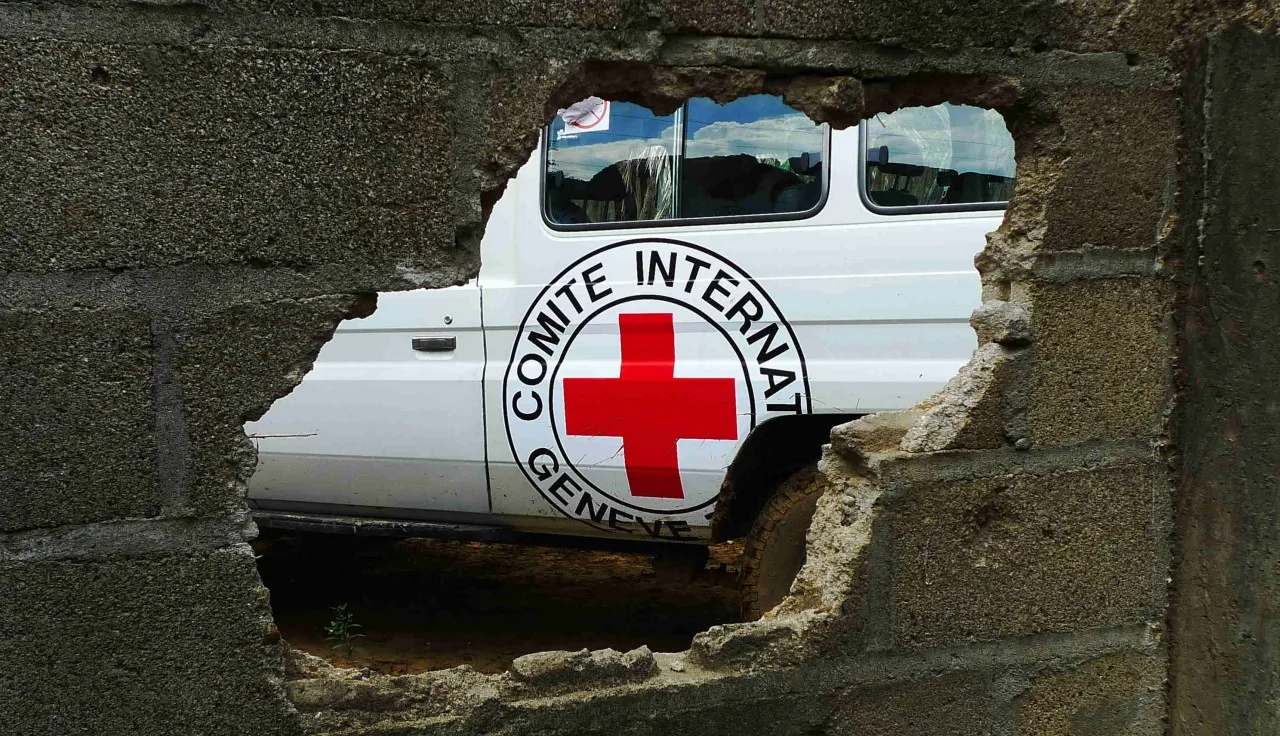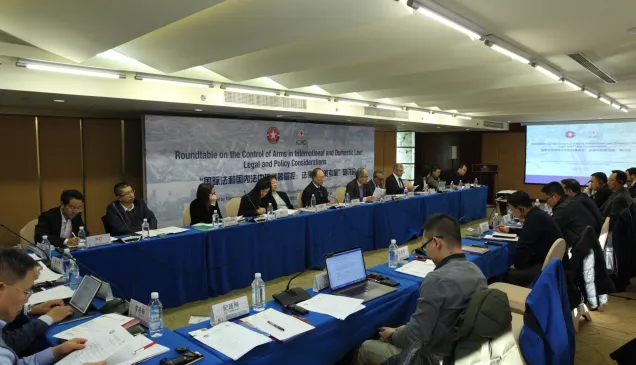Mr. President,
Excellencies, Ladies and Gentlemen,
I thank you for the opportunity to address the Tenth Conference of State Parties to the Arms Trade Treaty.
A week ago, for the 75th anniversary of the Geneva Conventions, I urged the world to recommit to a robust protective framework that saves lives and preserves humanity.
It is a dangerous time for civilians and for humanitarian personnel who strive to respond to unprecedented humanitarian needs.
As we mark World Humanitarian Day, the normalization of attacks against civilians and humanitarian personnel must be halted. The prohibition to transfer weapons where there is a risk they could be used for such purposes must be upheld.
Every day, the ICRC witnesses the immense human suffering caused by armed violence and conflict, fueled by the widespread availability and misuse of arms and ammunition.
In many places, including in the Democratic Republic of Congo, Haiti, Israel and the occupied territories, the Sahel, Somalia, Ukraine and Yemen, to mention but a few, this influx of weapons exacts an unacceptable human toll and hinders the prospects of building lasting peace.
With global arms sales on the rise, driven by growing international tensions, resurgent arms race dynamics and commercial incentives, the promotion of responsible action and restraint in the international arms trade is an ever more pressing humanitarian imperative.
Can the international community accept that vast quantities of conventional arms and ammunition continue to flow – overtly and covertly – to some of the most brutal armed conflicts, where there is a clear or overriding risk that they could be used to commit or facilitate international humanitarian law violations?
The Arms Trade Treaty (ATT) was designed to prevent the recurrence of horrors of preceding wars. When faithfully implemented, it plays an indispensable part in States’ efforts to prevent serious violations of international humanitarian law and human rights law.
As States Parties to the ATT, you showed leadership in adhering to the first global treaty to regulate the international trade in conventional arms.
I urge you to take an honest look at how actions and inactions in arms transfer perpetuate suffering and to demonstrate renewed commitment to the clear humanitarian purpose of the Arms Trade Treaty.
As part of your obligations, you must ensure that arms transfer decisions are subject to humanitarian concerns.
Any State as an arms supplier must apply greater diligence in assessing the risks posed by the arms they transfer, and implement timely, robust and practical measures that can realistically offset such risks.
Respect for international humanitarian law in arms transfer decisions must apply at all levels of decision-making and must not be trumped by economic or political considerations.
Where there is a clear risk that arms would be used to commit international humanitarian law violations, you must refrain from transferring them.
Exporting States should, furthermore, use their influence to foster respect for international humanitarian law by the arms recipient.
Second, the Treaty’s humanitarian aspirations must be operationalized to yield tangible impact on the ground.
The humanitarian purpose of the Treaty is evident. It recognizes the human cost of arms availability and spells out the aim of contributing to international and regional peace and security.
I welcome the attention given to the effective implementation of the provisions of the Arms Trade Treaty and the role of interagency cooperation in achieving this.
This should effectively mark the start of a renewed focus on practical issues in ATT implementation including the establishment of national control systems, greater control on arms flows and responsible arms transfer practices.
Finally, the international community must restore a vision of disarmament and arms control as a crucial path toward sustainable peace and security.
We might witness the first ever and highly regrettable withdrawal of a state party from a humanitarian disarmament treaty, it is more urgent than ever to uphold and strengthen the norms that safeguard humanity and preserve prospects for peace.
In this regard, I welcome Gambia and Malawi’s recent accession to the Arms Trade Treaty, and I encourage States that have not yet done so, to also adhere to it.
The ICRC remains deeply committed to supporting States Parties in the faithful application of the Treaty, and we stand ready to support all efforts to advance its universalization and implementation.
Thank you.



